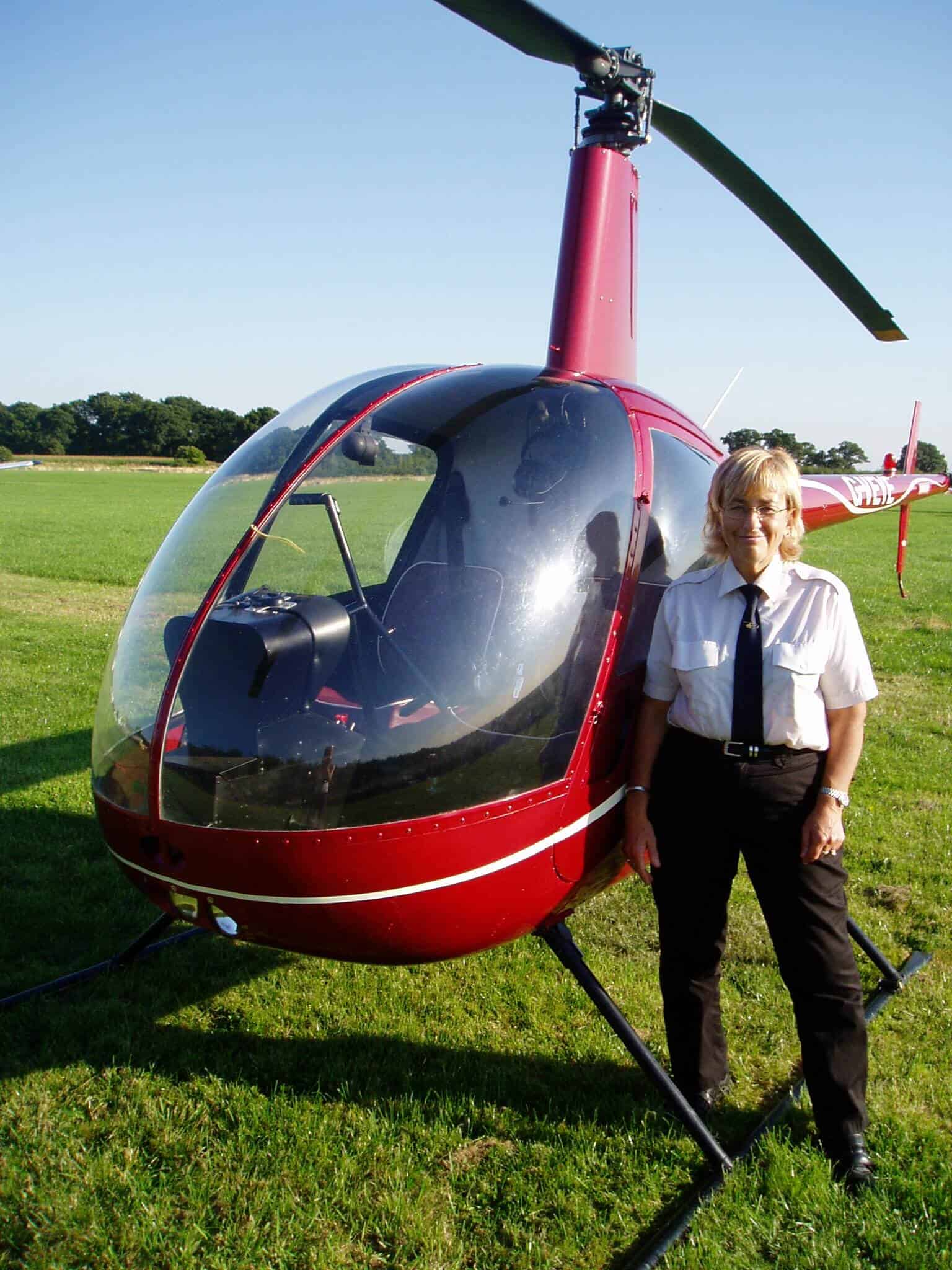

Helen Krasner holds a PPL(A), with 15 years experience flying fixed-wing aircraft; a PPL(H), with 13 years experience flying helicopters; and a CPL(H), Helicopter Instructor Rating, with 12 years working as a helicopter instructor. Helen is an accomplished aviation writer with 12 years of experience, having authored several books and published numerous articles while also serving as the Editor of the BWPA (British Women Pilots Association) newsletter, with her excellent work having been recognized with her nomination of the “Aviation Journalist of the Year” award. Helen has won the “Dawn to Dusk” International Flying Competition, along with the best all-female competitors, three times with her copilot.
![]()
Fact Checked
All content on Executive Flyers is rigorously reviewed by experienced and qualified fact-checkers. Our fact-checkers review each article to ensure that all the information presented is accurate, relevant and up-to-date. We only use the most reputable and up-to-date sources, which are also cited in the text. All content is fact-checked before publication.

One of the greatest fears among aspiring and qualified pilots is not being issued or losing their medical certificate.
Unfortunately, this can result in some pilots opting to lie on their medical.
But do the FAA check medical records?
What are the chances of getting caught lying on an FAA medical?
What will actually happen if you are caught lying?
These are a few of the most frequently asked questions pilots have concerning the FAA and their medical certificate.
In short, the FAA doesn’t check medical records unless they have a reason to – i.e. you disclose something that warrants further information or investigation, or something happens to you – like an accident, incident, or disciplinary action – which the FAA will then thoroughly investigate.
If the FAA finds out that you failed to disclose something that you should have disclosed, not only does it mean that you can lose your license, but you may also face a hefty fine or even criminal prosecution.
Table of Contents
Often it is not a case of pilots intentionally lying or withholding information that can get them into trouble, but ignorance of what they need to report.
According to “Pilot Self-Grounding Requirements” (CFR 61.53), pilots have the duty to ground themselves and report to the FAA any changes in their medical condition before they are able to fly again.
As the FAA put it, a pilot must ground themselves if they are “unable to meet the requirements for the medical certificate.”
But with such a vague statement, you can see why many pilots may unintentionally get themselves into trouble.
The best advice we can give you is to visit an aviation medical examiner (AME).
If they say that you have a condition that requires you to be grounded, then fill out an 8500-8 medical form.
The AME will then be required to report any changes to the FAA, If not, there is no need to report to the FAA.
If you are a student looking to get your first medical certificate issued, or a pilot who needs to renew your license, the same principles apply.
The Application for Airman Medical Certification (otherwise known as MedXPress or 8500-8), needs to be filled out prior to seeing an aviation medical examiner.
In this application, you must disclose any information about a condition that has the potential to affect your eligibility to fly.
The FAA will then require more detailed medical information before they can determine if you qualify for a medical certificate. This is done by directly contacting you the pilot.
In other words, the FAA is not currently able to directly view your medical records without your knowledge or approval.
However, if you are involved in an accident, incident, or disciplinary action, you can bet that the FAA and the necessary authorities will take the time to investigate, and things you didn’t disclose will come out.
The FAA makes it clear what counts as a disqualifying condition. Ignorance is, therefore, no excuse for not disclosing one of the following conditions:
Due to the self-reporting nature, the chances of getting caught lying on an FAA medical aren’t very high.
However, if you do get caught, at best you will lose your license. At worse, you may face a hefty fine or even criminal prosecution.
In our opinion, and even for a moment disregarding the morality of lying and putting yourself, your passengers, and anyone else’s safety at risk, it simply isn’t worth lying despite the low chances of getting caught.
The FAA is able to see what medication a pilot has been subscribed because they have access to the national prescription database.
During an FAA medical, a urine test will take place that checks sugars and protein levels. This is to screen for diabetes and kidney disease.
Drug use is not checked.